SciTS 2021 Featured Speakers and Panelists
Virginia Tech and INSciTS are proud to present a slate of world-class scholars, educators, and practitioners of team science at our online conference this June.

In addition to our featured speakers, SciTS 2021 will include presentations, workshops, and collaborative panels from contributors from around the world.
|
|
Timothy D. Sands is the 16th president of Virginia Polytechnic Institute and State University. A scientist, educator, and inventor, he has dedicated much of his career to advancing the impact of research and innovation in public education. As president, he has engaged the university community in a visionary plan to advance Virginia Tech’s role as a global land-grant institution, confronting the commonwealth’s, the country’s, and the world’s most challenging problems. The university’s residential campus in Blacksburg is being reimagined to support a modern land-grant mission and provide robust and adaptable infrastructure for continued growth in transformational research and community engagement. Virginia Tech Carilion’s rapidly developing Health Science and Technology campus in Roanoke is catalyzing economic opportunity in the Blacksburg-Roanoke region and enhancing NIH-funded research. In 2018, President Sands announced the creation of a 1-million-square-foot Innovation Campus in Northern Virginia to support the commonwealth’s economy with leading programs in computer science, software engineering, machine learning and artificial intelligence. President Sands’ vision for Virginia Tech embraces the university’s heritage of service and community and its motto, Ut Prosim (That I May Serve). Virginia Tech students will graduate with disciplinary mastery, technology literacy, cultural competency, resilience, empathy for others, and the passions and strengths needed for a life and career of impactful service to humanity. Follow President Sands on Twitter and Instagram at @VTSandsman.
|
|
|
A veterinarian, clinical pharmacologist, teacher, researcher, and academic leader, Dr. Cyril R. Clarke became the Executive Vice President and Provost of Virginia Tech in January, 2019, after serving in an interim capacity since November, 2017.
A native of Johannesburg, South Africa, Clarke earned his professional veterinary degree from the University of Pretoria, South Africa, a Ph.D. in veterinary pharmacology from Louisiana State University, and a master's degree in higher education from Oklahoma State University. He is certified as a Diplomate of the American College of Veterinary Clinical Pharmacology.
Clarke’s initial faculty appointment in 1987 was at Oklahoma State University, where he also served as an academic department head and associate dean for academic affairs in the Center for Veterinary Health Sciences. Funded by corporate, state, and federal agencies, including the U.S. Department of Agriculture and National Institutes of Health, Clarke’s research focused on the interactions between antibacterial agents, animal patients, and infectious microbes. He is a recipient of the Pfizer Award for Research Excellence.
In 2007, Clarke was appointed to the position of Lois Bates Acheson Dean of the College of Veterinary Medicine at Oregon State University. During his time as dean, Clarke continued to teach pharmacology to veterinary students. In addition to receiving a Certificate of Excellence in Teaching, Clarke was honored with the Oregon Veterinary Medical Association's President's Award. He subsequently joined Virginia Tech in October, 2013, as Dean of the Virginia-Maryland College of Veterinary Medicine.
Clarke has held leadership positions in several professional organizations, including the board of directors for the Association of American Veterinary Medical Colleges and past president of the American College of Veterinary Clinical Pharmacology. He is also a past member of the National Agricultural Research, Extension, Education, and Economics Advisory Board and the AVMA Council on Education, the accrediting agency for veterinary medical education in North America.
|
Keynote Speakers
|
|
|
Lori Peek is Professor in the Department of Sociology and Director of the Natural Hazards Center at the University of Colorado Boulder. She leads the NSF-funded CONVERGE facility, which is dedicated to improving research coordination and advancing the ethical conduct and scientific rigor of convergence research in disasters. She also serves as principal investigator for the NSF-supported Social Science Extreme Events Research (SSEER) and Interdisciplinary Science and Engineering Extreme Events Research (ISEEER) networks. Peek studies marginalized populations in disaster and is author of Behind the Backlash: Muslim Americans after 9/11, co-editor of Displaced: Life in the Katrina Diaspora, and co-author of Children of Katrina. Peek is past President of the International Sociological Association Research Committee on Disasters and past Chair of the American Sociological Association Section on Environmental Sociology. She is a Board Member for the Bill Anderson Fund, which is an initiative dedicated to increasing the number of persons of color in hazards mitigation and disaster research |
|
|
Lance R. Collins in 2020 was named the inaugural vice president and executive director of the Virginia Tech Innovation Campus planned in Alexandria, VA. Prior to that he served as the Joseph Silbert Dean of Engineering at Cornell University from 2010-2020 and the S. C. Thomas Sze Director of the Sibley School of Mechanical & Aerospace Engineering from 2005-2010. In 2011, he was part of the team that successfully bid to partner with New York City to build Cornell Tech, which opened its Roosevelt Island campus in 2017. In his role as dean, Collins accelerated the college’s efforts in diversity, overseeing the increase in the proportion of underrepresented minority students from 8 to 19 percent, and the percentage of undergraduate women from 33 to 50 percent, more than twice the national average. For those efforts, he received the inaugural Mosaic Medal of Distinction from Cornell Mosaic and the Edward Bouchet Legacy Award from the Bouchet Graduate Honor Society.
Collins is a professor of mechanical engineering. His research is focused on the application of direct numerical simulation to a broad range of turbulent processes. He is a fellow of the American Physical Society, the American Association for the Advancement of Science, and the American Institute of Chemical Engineers. In 2014, he received the William Grimes Award from the AIChE and in 2021 he was elected to the National Academy of Engineering. Collins graduated from Princeton in 1981 with honors and holds a M.S. and Ph.D. from the University of Pennsylvania, all in chemical engineering.
|
|
|
Dr. Sabine Hoffmann is Group Leader of Inter- and Transdisciplinary Research at the Swiss Federal Institute of Aquatic Science and Technology (Eawag) in Switzerland. She is also Head of the strategic inter- and transdisciplinary research program Wings (Water and sanitation innovations for non-grid solutions).
She received her PhD degree in Development Studies from the Graduate Institute of International and Development Studies in Geneva (Switzerland); she earned a Master of Advanced Studies degree in Development and Cooperation from the Swiss Federal Institute of Technology in Zürich (Switzerland) and a Master of Science degree in Geo-Ecology from the University of Bayreuth (Germany).
Her research focuses on integration and integrative leadership in large inter- and transdisciplinary research programs. Her publications have appeared in outlets across a number of fields, including environmental sciences (e.g. Science, Environmental Science and Technology, Frontiers in Environmental Science, Ecology and Society), social sciences (e.g. Environmental Science and Policy), and management science (e.g. Research Policy). She was awarded with the Swiss Academies Award for Transdisciplinary Research for her work within the Swiss National Research Program (NRP 61), leading one NRP 61 synthesis process and concurrently studying integration within all four synthesis processes.
Prior to her PhD, she worked as a development consultant for the Swiss Agency for Development and Cooperation (SDC), the German Agency for International Cooperation (GIZ) and the International Secretariat for Water (ISW) in Bolivia, Central and Eastern Europe.
|
|
|
Gopi Gopalakrishnan has over three decades of experience in implementing large-scale service-delivery programs in low-resource settings. He has founded two large organizations—World Health Partners (WHP) which focuses on delivering primary health care to rural communities by using digital technologies in the poorest states of India and Kenya; Janani which delivers reproductive health services to poor populations. WHP works with both private and public sectors.
Gopi has been a member of India’s Population Commission and has advised the Ministry of Health and numerous national and international organizations on large-scale cost-effective service delivery. He has served on the global technical advisory board of the International Finance Corporation, an affiliate of the World Bank, and is currently a member of the Advisory Group on Community Action of the National Health Mission.
Gopi also worked as the Director of International Programs of DKT International based in Washington DC overseeing programs in 14 countries and as Country Director of DKT Vietnam based in Hanoi. He has been awarded by the Skoll Foundation, the Schwab (World Economic Forum) Foundation and Ashoka Foundation for social entrepreneurship, and is the recipient of a prestigious civilian honor from the Government of Vietnam. He has attended Harvard and has received leadership training from UC-Berkeley and Johns Hopkins University.
|
Invited Panelists
|
Social Complexities of COVID-19 Through the Lens of International Research Collaborations
|
|
|
Karen A. Roberto, Ph.D. is a University Distinguished Professor, Executive Director of the Institute for Society, Culture and Environment, and Senior Fellow at the Center for Gerontology at Virginia Tech. She holds secondary appointments in the Departments of Internal Medicine and Psychiatry and Behavioral Medicine at the Virginia Tech Carilion School of Medicine. Her research focuses on health and social support in late life and includes studies of the health of rural older women, dementia family caregiving, and elder abuse. Much of Dr. Roberto’s research relies on community-based samples, combines quantitative and qualitative methodologies, and includes interviews with older adults, family members, and formal service providers. She has secured over $12M in external funding to support her research program and has published over 200 scholarly articles and book chapters and is editor/author of 15 books. Dr. Roberto is a fellow of the American Psychological Association, the Gerontological Society of America, and the National Council on Family Relations. She is the recipient of several awards and honors including the Gerontological Society of America Behavioral and Social Sciences Distinguished Mentorship Award and the Gary Andrews Visiting Fellow Award from the Australian Association for Gerontology. |
|
|
Stephen Hilgartner is Professor of Science & Technology Studies at Cornell University. His research examines the social dimensions and politics of contemporary and emerging science and technology, especially in the life sciences. His work focuses on situations in which scientific knowledge is implicated in establishing, contesting, and maintaining social order — a theme he has addressed in studies of expertise, property formation, risk disputes, and biotechnology. His most recent book, Reordering Life: Knowledge and Control in the Genomics Revolution (MIT Press, 2017), examines how new knowledge and new regimes of control took shape during the Human Genome Project. Hilgartner’s book on science advice—Science on Stage: Expert Advice as Public Drama—won the Rachel Carson Prize from the Society for Social Studies of Science. He is also a co-editor of two recent books: Science & Democracy: Making Knowledge and Making Power in the Biosciences and Beyond (Routledge, 2015) and Handbook of Genomics, Health and Society (Routledge, 2018). Hilgartner is a Fellow of the American Association for the Advancement of Science.
|
|
|
Dr. Andri Georgiadou is an Assistant Professor of Human Resource Management at Nottingham University Business School, UK and the Director of the Equality Inclusion and Diversity Centre. Her research focuses on equality, diversity, and inclusion at work from relational and interdisciplinary perspectives. Her work has led to publications in leading peer-reviewed journals, such as Human Resource Management Journal, Gender Work & Organization, and European Management Review among others, and several book chapters. Dr Georgiadou sits on the editorial board of the journal of International Studies of Management & Organization as the Review Editor. She is also the Elected Representative-at-Large of the Management Education and Development Division of the Academy of Management (AOM), the Deputy Chair and Vice Chair Events for Academy of International Business (AIB) Western Europe chapter. [Email: [email protected], Website: www.andrigeorgiadou.com] |
|
|
Denis Gracanin is an Associate Professor in the Department of Computer Science at Virginia Tech.
His research interests are at the intersection of human computer interaction and Internet of Things (IoT), including the design of and interactions in smart built environments (SBEs).
He is interested in using eXtended reality (XR) technology to effectively interact with IoT-enabled spaces (SBEs) to support contextualized interactions and collaboration.
|
|
|
Caroline S. Wagner currently holds the Ambassador Milton A. and Roslyn Z. Wolf endowed Chair in International Affairs at the John Glenn School of Public Affairs, The Ohio State University, where she also serves as an affiliate of the Battelle Center for Science & Technology Policy at Ohio State and a faculty member. Dr. Wagner earned her doctorate from the University of Amsterdam in Science and Technology Dynamics; she received her Master of Arts degree in Science, Technology and Public Policy from George Washington University, and holds a Bachelor of Arts degree from Trinity College.
Her scholarship is in science and technology dynamics with a focus on international collaboration in science and technology. Her career in science and technology policy analysis has spanned more than thirty years. She has written more than 50 peer reviewed articles and two books about policy for scientific cooperation. At The RAND Corporation, she was deputy to the director of the Science & Technology Policy Institute, a research center serving the White House Office of Science and Technology Policy, where she focused on international cooperation in science and technology; other studies included critical technologies, innovation studies, and regional economic development.
|
Cross-sector Collaborations in Disaster Response
|
|
|
Patrick S. Roberts is associate professor in the Center for Public Administration and Policy and the School of Public and International Affairs at Virginia Tech in Arlington, VA. His research focuses on managing and governing disaster risk and consequences. He has published in a variety of scholarly and popular journals, and he is the author of Disasters and the American State: How Politicians, Bureaucrats, and the Public Prepare for the Unexpected (Cambridge, 2013). He has served as a foreign policy advisor in the State Department’s Bureau of International Security and Nonproliferation, funded by a Council on Foreign Relations Stanton International Affairs Fellowship. He holds a Ph.D. in Government from the University of Virginia. He spent two years as a postdoctoral fellow, one at the Center for International Security and Cooperation at Stanford University and another at the Program on Constitutional Government at Harvard University. |
|
|
Dr. Jennifer L. Irish is a professor of coastal engineering and associate director of the Center for Coastal Studies at Virginia Tech. Prior to joining academia in 2006, Irish served as regional technical specialist in coastal engineering for the U.S. Army Corps of Engineers. Her scholarly contributions have advanced understanding in four areas within coastal engineering and science: airborne lidar bathymetry in the coastal zone, nature-based infrastructure for coastal hazard mitigation, physics of storm surge and related probabilistic surge hazard assessment, and impacts of sea level rise at the coast. Irish is a member of the Virginia Academy of Science, Engineering and Medicine; a member of the Coastal Engineering Research Council; a fellow of the American Society of Civil Engineers; and on the editorial boards of Coastal Engineering and the Journal of Waterway, Port, Coastal, and Ocean Engineering. |
|
|
Sonja D. Schmid is an associate professor in the Department of Science, Technology, and Society (STS) at Virginia Tech. She is the author of Producing Power: The Pre-Chernobyl History of the Soviet Nuclear Industry (MIT Press 2015), and has also published on Soviet nuclear technology transfer to Central and East European countries. Her most recent research, supported by an NSF CAREER Award, has examined the challenges involved with globalizing post-Fukushima nuclear emergency response initiatives. She serves as the co-director of the STS graduate program in the DC area, where she teaches courses on the history of technology, qualitative studies of risk, and energy policy. Together with the Nuclear Engineering Program, she developed and teaches an interdisciplinary graduate certificate in "Nuclear Science, Technology, and Policy". Prior to joining Virginia Tech, Dr. Schmid was a postdoctoral fellow at the James Martin Institute for Nonproliferation Studies in Monterey, and at Stanford’s Center for International Security and Cooperation (CISAC). She earned her Ph.D. in Science and Technology Studies from Cornell University, and an M.A. from the University of Vienna, Austria. |
|
|
Rajib Shaw is the professor in Graduate School of Media and Governance in Keio University, Japan. Earlier, he was the Executive Director of the Integrated Research on Disaster Risk (IRDR), and a professor in Kyoto University. He is also the Senior Fellow of Institute of Global Environmental Strategies (IGES) Japan, and the Chairperson of SEEDS Asia and CWS Japan, two Japanese NGOs. He is the co-founder of a Delhi (India) based social entrepreneur startup Resilience Innovation Knowledge Academy (RIKA). His expertise includes community-based disaster risk management, climate change adaptation, urban risk management, and disaster and environmental education. He was the Chair of the United Nations Global Science Technology Advisory Group (STAG); and current Co-chair of the Asia Science Technology Academic Advisory Group (ASTAAG); and CLA (Coordinating Lead Author) for the IPCC 6th Assessment Report (Asia Chapter). He is the editor of a book series on disaster risk reduction, published by Springer. Prof. Shaw has published more than 51 books and over 400 academic papers and book chapters. Professor Shaw is the recipient of prestigious “Pravasi Bharatiya Samman Award (PBSA)” in 2021 for his contribution in education sector. PBSA is the highest honor conferred on overseas Indian and person of Indian origin from the President of India.
More of his work can be seen in: www.rajibshaw.org
|
|
|
Douglas Nam Le serves as the Disaster Recovery Officer for the County of Hawai‘i leading the recovery effort from the 2018 Kīlauea lava eruption. Before taking this position he was the Administrative Services Officer for the County’s Planning Department. Prior to relocating to the Island of Hawai‘i, Douglas served in the New York City Office of the Mayor where he held senior positions with the Office of Recovery and Resiliency and the Climate Policy and Programs team working at the intersection of climate change mitigation and adaptation. Douglas previously worked in community development, community-based planning, policy advocacy, and resident leadership development with working-class, immigrant communities in New York City. Douglas received a Master's of Urban Planning degree from New York University and a Bachelor's degree in Urban Studies from Columbia University. He is a member of the American Institute of Certified Planners. |
Team Science Approaches to Public Interest Technology
|
|
|
Sylvester A. Johnson is Assistant Vice Provost for the Humanities and Executive Director of the “Tech for Humanity” initiative at Virginia Tech. He is the founding director of Virginia Tech’s Center for Humanities, which is supporting human-centered research and humanistic approaches to the guidance of technology. Sylvester’s research has examined religion, race, and empire in the Atlantic world; religion and sexuality; national security practices; and the impact of intelligent machines and human enhancement on human identity and race governance. In addition to co-facilitating a national working group on religion and US empire, Johnson led an Artificial Intelligence project that developed a successful proof-of-concept machine learning application to ingest and analyze a humanities text. He is the author of The Myth of Ham in Nineteenth-Century American Christianity (Palgrave 2004), a study of race and religious hatred that won the American Academy of Religion’s Best First Book award; and African American Religions, 1500-2000 (Cambridge 2015), an award-winning interpretation of five centuries of democracy, colonialism, and freedom in the Atlantic world. Johnson has also co-edited The FBI and Religion: Faith and National Security Before and After 9/11 (University of California 2017). He is co-edit founding co-editor of the Journal of Africana Religions. He is currently producing a digital scholarly edition of an early English history of global religions and writing a book on human identity in an age of intelligent machines and human-machine symbiosis. |
|
|
Professor Bsumek has written on Native American history, environmental history/studies, the history of the built environment, and the history of the U.S. West. She is author of the award winning, Indian-made: Navajo Culture in the Marketplace, 1848-1860 (University Press of Kansas, 2008) and the coeditor a collection of essays on global environmental history titled Nation States and the Global Environment: New Approaches to International Environmental History (Oxford University Press, 2013). Her current research explores the social and environmental history of the area surrounding Glen Canyon on the Utah/Arizona border from the 1840s to the present. The working title of the book is "Infrastructures of Dispossession: Latter-Day Saints, American Indians, and Water Technologies on the Colorado Plateau, 1800 to the Present." She is also working on a larger project that examines the impact that large construction projects (dams, highways, cities and suburbs) had on the American West which is tentatively titled "The Concrete West: Engineering Society and Culture in the Arid West, 1900-1970." She has written Op-eds for publications such as Time, the Austin American Statesman, Huffington Post, Al Jazeera America, and Pacific Standard. She is a member of the Academy of Distinguished Teachers at the University of Texas and the creator of digital timeline software, called ClioVis, that has been used by over 7,000 students. The platform enables students and researchers to create time-aligned interactive network maps of their research or course material. The platform has been used by Instructors across America from community colleges to universities and colleges.
|
|
|
Luiz DaSilva is the inaugural Executive Director of the Commonwealth Cyber Initiative (CCI), a statewide initiative in Virginia with a mission of research, workforce development, and innovation at the intersection of cybersecurity, autonomy, and intelligence. He is also the Bradley Professor of Cybersecurity at Virginia Tech. Prof. DaSilva previously held the chair of Telecommunications at Trinity College Dublin, where he served as the Director of CONNECT, a national telecommunications research center in Ireland. Prof. DaSilva’s research focuses on adaptive resource management in wireless networks, including cognitive networks and the application of game theory to wireless networks. He has published two books and more than 300 peer-reviewed articles, and chaired the Technical Program for ICC 2020, one of the flagship conferences of the IEEE Communications Society. He was an IEEE Communications Society Distinguished Lecturer (2015-2018), a Fellow of Trinity College Dublin, and is a Fellow of the IEEE, for contributions to cognitive networking and to resource management in wireless networks. |
|
|
Stephanie (Nikki) Lewis is a Collegiate Assistant Professor in the Honors College at Virginia Tech. She holds a transdisciplinary Ph.D. in Genetics, Bioinformatics, and Computational Biology, which she has translated to curriculum development for honors students in a variety of ways. She co-developed the college’s research-focused course offerings, which encourages students from all disciplines to practice higher-order thinking processes in their understanding and exploration of global challenges. She also served on the curriculum working group for the Calhoun Discovery Program, which is a four-year, cohort-based undergraduate academic experience combining modular threshold concept education pertinent to socio-technical innovation, recurrent collaborative studio experiences, and project-based learning with company and non-profit partners. Her research interests include best practices for teaching use of computational tools for drug discovery and development, and pedagogical practices for engaging undergraduates in problem-solving and decision-making practices. |
Leading Across Sectors to Solve Grand Challenges
|
|
|
Executive Director, The Universities at Shady Grove, and Associate Vice Chancellor for Academic Affairs, University System of Maryland |
|
|
Dr. Jay Perman became the fifth chancellor of the University System of Maryland (USM) in January 2020. Comprising 12 universities and three regional higher education centers, the USM enrolls 170,000 undergraduate and graduate students.
Prior to this appointment, Dr. Perman served as president of the University of Maryland, Baltimore (UMB) for a decade. A pediatric gastroenterologist, he still practices medicine once a week, teaching team-based health care to students in UMB’s six professional schools.
As chancellor, Dr. Perman is committed to advancing higher education affordability for all Maryland students. He has pledged to build on the USM’s reputation for innovation, particularly in research, economic development, and community engagement. Above all, he seeks to fulfill what he sees as his most fundamental obligation: ensuring that every person in Maryland who wants a college education can access it.
Dr. Perman received his Doctor of Medicine degree—with Distinction—from Northwestern University.After his residency in pediatrics at Northwestern’s Children’s Memorial Hospital, he completed a fellowship in pediatric gastroenterology at Harvard Medical School and the Children’s Hospital Medical Center in Boston.
In addition to UMB, Dr. Perman has held faculty and leadership positions at UCSF, Johns Hopkins University, Virginia Commonwealth University, and the University of Kentucky. |
|
|
Habitat for Humanity Atlanta |
|
|
Christopher Austin is a CEO-Partner at Flagship Pioneering in Cambridge, MA. In that role, he serves as CEO of one of Flagship’s franchise companies and advises on the operation and creation of other Flagship entities. Before joining Flagship in 2021, Dr. Austin served for almost a decade as the founding director of the National Center for Advancing Translational Sciences at the NIH, where he formulated the strategic vision and scientific directions of the new center, and led its efforts in developing, demonstrating, and disseminating scientific and operational advances across the spectrum of translational science to get more treatments to more patients more quickly, from target validation to preclinical therapeutic development to clinical trials to community health implementation. Before NCATS, Austin founded and directed a number of scientific and technology initiatives at the National Human Genome Research Institute at NIH to derive biological insights and therapeutic potential from the human genome. Austin came to NIH in 2002 from Merck, where his work focused on genome-based discovery of novel targets and drugs, with a particular focus on common complex neuropsychiatric diseases. He received his A.B. in biology from Princeton and M.D. from Harvard Medical School, did clinical training in internal medicine and neurology at Massachusetts General Hospital, and completed a research fellowship in genetics at Harvard. |
|
|
Alexa Delwiche is co-founder and executive director of the Center for Good Food Purchasing. She previously served as Managing Director of the Los Angeles Food Policy Council from 2011 – 2015. At the LA Food Policy Council, she spearheaded the development, launch and implementation of the Good Food Purchasing Program. From 2009 – 2010, Alexa was the Food Policy Coordinator for the Los Angeles Food Policy Task Force. Previously, Alexa worked for the United Farm Workers and the San Francisco Board of Supervisors. Alexa has a Master’s of Public Policy from UCLA. |
Building Inclusive Science Teams
|
|
|
Andrea Stith is currently Director of Research Development for Science and Engineering at the University of California at Santa Barbara. She received her doctorate in Biophysics from the University of Virginia, and her bachelor’s degree in Physics from the University of Delaware. She is a former AAAS/NSF Science and Technology Policy Fellow in the Office of Legislative Affairs, was a program officer at the Howard Hughes Medical Institute, and a policy analyst at the Federation of American Societies for Experimental Biology. Prior to joining UCSB, she served as assistant director for interdisciplinary education at the University of Colorado BioFrontiers Institute and as a research fellow at the Graduate School of Education of Shanghai Jiao Tong University in Shanghai, China. She also studied science and higher education policies as a German Chancellor Fellow at Humboldt University in Berlin and Ludwig Maximilian University in Munich. Her professional interests include graduate and postdoctoral education, facilitating interdisciplinary research, broadening participation in STEM, and the internationalization of science. She is on the board of American Friends of the Alexander von Humboldt Foundation and is chair of board the Martha Mason Hill Memorial Foundation |
|
|
Dr. Omolola Eniola-Adefeso is currently University Diversity and Social Transformation Professor of Chemical Engineering, Biomedical Engineering, and Macromolecular Science and Engineering at the University of Michigan. She graduated from the University of Maryland Baltimore County (UMBC) with a bachelor’s in Chemical and Biomolecular Engineering. She then went on to complete her Masters (2000) and Doctoral degrees (2004) in Chemical and Biomolecular Engineering at the University of Pennsylvania. She was a postdoctoral associate at Baylor College of Medicine in Houston, Texas in the Pediatrics/Leukocyte Biology Department. Dr. Eniola-Adefeso joined the faculty of Chemical Engineering at the University of Michigan in 2006 where she runs the Cell Adhesion and Drug Delivery Laboratory. Since her arrival at Michigan, Dr. Eniola-Adefeso is a Biomedical Engineering Society Fellow and has received several honors and awards including the NSF CAREER Award, Lloyd Ferguson Young Investigator Award, American Heart Association Innovator Award, and the American Heart Association Scientist Development Grant. Her research is currently funded by multiple grants from the American Heart Association and National Heart, Lung and Blood Institute of the NIH. Her research looks to design biocompatible functional particles for targeted drug delivery. In 2021, Eniola-Adefeso and BME colleagues from many US institutions called out racial funding disparity by the National Institutes of Health garnering support for these larger institutional DEI changes from both academic and non-academic communities.
|
|
|
Lee Vinsel is an assistant professor of Science, Technology, and Society at Virginia Tech and a co-director of The Maintainers, a global, interdisciplinary research network focused on maintenance, repair, and the mundane work that keeps our world going. He is the author of Moving Violations, a history of automobile regulation in the United States, and co-author with Andy Russell of The Innovation Delusion: How Our Obsession with the New Disrupts the Work that Matters Most. His work has appeared or been covered in the New York Times, Guardian, Atlantic, Le Monde, and many other outlets around the world. |
|
|
Dr. Kelly J. Cross, Assistant Professor of Chemical Engineering at University of Nevada Reno, is a culturally responsive practitioner, researcher, and educational leader. She earned her Bachelors of Science in Chemical Engineering from Purdue University in 2007 and Masters of Science in Materials Science and Engineering from the University of Cincinnati in 2011. Dr. Cross completed the doctoral program in the Engineering Education department at Virginia Tech in 2015 and worked as a post-doctoral researcher with the Illinois Foundry for Innovation in Engineering Education at the University of Illinois at Urbana-Champaign (UIUC). Dr. Cross worked to redesign the curriculum in Bioengineering department through the NSF program Revolutionizing Engineering Departments (RED) at UIUC. She is a member of the ASEE Leadership Virtual Community of Practice (LVCP) that organizes and facilitates Safe Zone Training workshops. Dr. Cross has conducted online and in-person workshops on managing personal bias in STEM, managing privilege and power in the classroom, and promoting inclusion in higher education. Her research interests include inclusive excellence in STEM, identity construction, intersectionality, teamwork and communication skills, and educational assessment. Her teaching philosophy focuses on student centered approaches such as problem-based learning and culturally relevant pedagogy. Dr. Cross’ complimentary professional activities promote inclusive excellence through collaboration.
|
|
|
Maritza Salazar Campo is an Assistant Professor of Organization & Management at the Paul Merage School of Business at UC Irvine. Her research focuses on knowledge integration, learning, and innovation in interdisciplinary teams. Dr. Salazar Campo is a graduate of Stanford University, USC., and has her Ph.D. in Business Administration from NYU’s Stern School of Business. She is the Founding President of the International Network for the Science of Team Science (INSciTS), Program Director of Team Science at UC Irvine and UCLA, and a lead contributor to the Team Science Acceleration Lab at UCI (https://tsal.uci.edu/). |
Addressing the Challenges of Megaregions through Team Science
|
|
|
Shalini Misra is an Associate Professor in the School of Public and International Affairs at Virginia Tech. Her research focuses on the study of the processes and outcomes of transdisciplinary collaborative scientific, training, and action research initiatives; and the social, psychological, and cultural implications of the Internet and mobile communication technologies. Key themes in Shalini’s research and writing include cognitive and health consequences of information overload and multitasking; interpersonal relationships in ubiquitous computing environments; environmental orientations, identity and sense of community in the Digital Age; contextual influences on interdisciplinary collaboration; interdisciplinary education and curriculum development; and evaluation of team science initiatives. Shalini is the co-editor of a recent open access volume titled Communication in Transdisciplinary Teams (Informing Science Press). She is currently leading an NSF funded project to understand how people’s information environment during the COVID pandemic shapes their risk perceptions, attitudes, and behavioral intentions. She is also working on an NSF funded project evaluating NSF’s investments in Convergence Research through their C-Accel and Growing Convergence Research programs.
Shalini’s research has been supported by NSF, NIH, Urban Communication Foundation, Intel Digital Cultures, and the National Academies Keck Futures Initiative. She serves on the Board of Directors of the International Network of the Science of Team Science (INSciTS). She is co-Chair of the 2021 International Science of Team Science Conference hosted by Virginia Tech. She has a Ph.D. in Planning, Policy, and Design from University of California Irvine, an M.S. in Sustainable Resource Management (Technical University of Munich, Germany) and a B.S. in Civil Engineering (Gujarat University, India).
|
|
|
Jeroen Klink has a Bachelor and Master´s degree in economics (Tilburg University, the Netherlands) and a PhD in urban planning (University of São Paulo, Brazil). Over the last twenty-five years, he has been active as a consultant and researcher in countries such as the Netherlands, India and Brazil. In the Netherlands he was a Staff Member of the Institute for Housing and Urban Development Studies (Erasmus University- Rotterdam). In Brazil, he has worked for nine years in local government, among others as a secretary for development and regional planning in the city of Santo André (Metropolitan São Paulo) and as a Member of the Board of a Regional Development Agency in metropolitan São Paulo. Nowadays he is working in the Federal University of the ABC region (UFABC), created in 2005 by the Brazilian government, where he has been involved in the setting up of the institution. He is on the board of trustees of the Urban Studies Foundation (Glasgow) as well on the advisory board of several international academic journals. He has published books, chapters and papers in peer revied journals on issues related to urban and metropolitan planning and governance, urban finance and economics.
|
|
|
Federal Transit Administration |
|
|
Dr. Stanley Grant is a Professor in the Department of Civil and Environmental Engineering at Virginia Tech, co-Director of the Occoquan Watershed Monitoring Laboratory (OWML) in Northern Virginia, and Emeritus Professor in the Departments of Civil and Environmental Engineering and Chemical Engineering at the University of California, Irvine. He also served as Chair of Hydrology and Water Resources in the Department of Infrastructure Engineering at the University of Melbourne (Australia). Dr. Grant’s professional interests include the measurement and modeling of pollutants in coastal and inland waters. He has led several competitive multi-million dollar center research programs, including a $5M National Science Foundation (NSF) Partnership for International Research and Education grant focused on the Millennium Drought in Australia, a $2M project funded by the UC Office of the President to evaluate capturing and reusing stormwater runoff on the five southern UC campuses, and most recently a $3.6M NSF Growing Convergence Research project to evaluate bottom-up approaches for managing salinization of inland freshwaters in the Mid-Atlantic U.S. Dr. Grant has published more than 80 peer-reviewed articles in top journals, and his former PhD and post-doctoral students are themselves professors at top research universities, environmental scientists and professional engineers. He was a member of US EPA’s Science Advisory Board (Drinking Water Panel, Science and Technological Achievement Awards Panel) from 2000 to 2009 and is a frequent reviewer and panelist for research journals and funding agencies. Dr. Grant received his B.S. with distinction in Geology from Stanford University in 1985; and his M.S. and Ph.D. in Environmental Engineering Science (with a minor in Applied Biology) in 1990 and 1992, respectively, from the California Institute of Technology. |
|
|
Margaret Cowell, PhD is an Associate Professor of Urban Affairs and Planning at Virginia Tech where she teaches courses on economic development, urban economics, and public policy. Dr. Cowell previously worked for the Buffalo Branch of the Federal Reserve Bank of New York and was also a member of the John D. and Catherine T. MacArthur Foundation-funded research project, “Building Resilient Regions.” She is currently a co-PI for Virginia Tech’s National Science Foundation Research Traineeship (NRT) program on Disaster Resilience and Risk Management. She is the author of Dealing with Deindustrialization: Adaptive Resilience in American Midwestern Regions (Routledge 2014) and has published numerous peer-reviewed articles focused on economic resilience, economic restructuring, and economic development. Her most recent work examines entrepreneurs and small businesses in the neighborhoods most likely to be impacted by Amazon HQ2 and Virginia Tech’s $1B Innovation Campus developments in Northern Virginia. She is also presently working on a co-edited book about the ties that bind Virginians across the urban-rural spectrum. Dr. Cowell’s research has been funded by the National Science Foundation, MacArthur Foundation, Kauffman Foundation, National Association of Counties, and United States Economic Development Administration. She holds a Ph.D. in City and Regional Planning from Cornell University, Master of Urban Planning from SUNY Buffalo, and B.A. in Urban Studies from Brown University. |
Round Table 1: University Initiatives to Promote Transdisciplinary Research
|
|
|
Isabel S. Bradburn, Ph.D., directs the Virginia Tech Policy Destination Area Transdisciplinary Community. She is Research Director of the Child Development Center for Learning and Research and Fellow of the Institute for Society, Culture and Environment at Virginia Tech. Her research examines longitudinal achievement trajectories and translating effectiveness trials to family community-level interventions. |
|
|
Catherine Amelink serves as the Associate Vice Provost for Learning Systems Innovation at Virginia Tech. In this role she facilitates the university-wide Destination Area initiative, an effort to advance transdisciplinary research and learning that will address complex problems that impact the human condition and also develop complex problem solving skills among students. She has presented outcomes of this work at national conferences including the Association of American Colleges and Universities and the National Alliance for Broader Impacts. She has been involved in a number of external evaluation efforts that examine how transdisciplinary teams collaborate to achieve research goals. More generally, her research has been published in several peer-reviewed journals, including the Journal of Engineering Education, the Journal of Women and Minorities in Science and Engineering, the Journal of Women in Higher Education, Advances in Engineering Education and the Journal of Community College Research and Practice. She is an affiliate faculty in both the Higher Education program in the School of Education and the Department of Engineering Education in the College of Engineering.
|
|
|
Prof. Mark A. Burns is the T. C. Chang Professor of Engineering, Advisor to the Dean of Engineering, and a Professor in both Chemical Engineering and Biomedical Engineering at the University of Michigan. He joined the University of Michigan in 1990 after teaching at the University of Massachusetts for 4 years. He obtained his MS and PhD degrees in Chemical and Biochemical Engineering from the University of Pennsylvania, and his BS degree from the University of Notre Dame.
Prof. Burns has over 300 publications, patents, and presentations. He is a Fellow of the National Academy of Inventors, the American Institute for Chemical Engineers, and the American Institute for Medical and Biological Engineering. He has won numerous awards including the Food, Pharmaceutical, and Bioengineering Division Award from AIChE, and both a Teaching Excellence Award and a Research Excellence Award from the College of Engineering at the University of Michigan. He co-develop and ran the innovative seed-funding program at Michigan called Mcubed, a program that has distributed approximately $45M in seed funding to fund approximately 750 faculty/student teams. The funded teams generated over $130M of external research funding and produced hundreds of publications and other scholarly works.
|
|
|
Michael O’Rourke is Professor of Philosophy and faculty in AgBioResearch and Environmental Science & Policy at Michigan State University. He is Director of the MSU Center for Interdisciplinarity (http://c4i.msu.edu/) and Director of the Toolbox Dialogue Initiative, an NSF-sponsored research initiative that investigates philosophical approaches to facilitating interdisciplinary research (http://tdi.msu.edu/). His research interests include epistemology, communication and epistemic integration in collaborative, cross-disciplinary research, and linguistic communication between intelligent agents. |
|
|
Dr. Stephanie E. Vasko is the Managing Director for the Center for Interdisciplinarity at Michigan State University, a researcher with the Toolbox Dialogue Initiative, and a core faculty member for DH@MSU (Digital Humanities at MSU).
Her research interests include strategic and collaboration planning for teams, the use of machine learning in team science and the science of team science, machine learning and artistic expression, and the role of the arts in sustainability. Dr. Vasko also works on strategic planning, community building, and enhancing communication and collaboration with both academic and non-academic groups. She has served as a co-PI on multiple National Science Foundation grants focused on enhancing communication and collaboration on teams.
Dr. Vasko has been a member of the Science of Team Science community for the past six years. In 2019, she served as the co-program chair and a member of the executive committee for the International Network for the Science of Team Science conference. In 2020, she served as a member of the conference program committee, and in 2021 she is co-designing the Early Career Colloquium for the conference. |
Round Table 2: Discovering and Representing Deep Integration in Convergence Research
|
|
|
Lisa Christen Gajary, Ph.D., is an independent consultant and an instructor at The Ohio State University John Glenn College of Public Affairs. Her current research focuses on science and technology policy analysis and the management of collaborative scientific endeavors. A highlight of her practice-based and academic research is developing computational simulation modeling approaches for boundary-spanning strategic planning and contextually based strategy optimization. Her research has been supported by or in support of the Battelle Center for Science and Technology Policy, Clarivate, Lawrence Livermore National Laboratory, and the National Science Foundation. Lisa began her career at the bench, studying the biochemistry of retroviruses and the role of reverse transcriptase enzyme in HIV-1 replication. Prior to her doctoral studies, she was a manager of laboratory and research space at Ohio State University’s NCI-designated Comprehensive Cancer Center. Lisa has a Ph.D. and an M.A. in Public Policy and Management from The Ohio State University John Glenn College of Public Affairs and a B.S. degree in Zoology from Miami University. |
|
|
Stephen Crowley, PhD is chair of the Philosophy Department at Boise State University, Idaho, USA. He is also a member of the Toolbox Dialogue Initiative. He helps facilitate team science projects (as part of the Toolbox Dialogue Initiative) in a variety of areas as well as working on models of such collaborations and how to support them. |
|
|
Julie Thompson Klein, Ph.D., is Professor of Humanities Emerita in the English Department at Wayne State University and an Affiliate of the TdLab (Transdisciplinarity Lab) at the ETH-Zurich university for science and technology in Switzerland. She has also been a Mellon Fellow and a Visiting Professor in Digital Humanities at the University of Michigan. Klein is past president of the Association for Interdisciplinary Studies (AIS) and former editor of the AIS journal Issues in Interdisciplinary Studies. Her books include Interdisciplinarity (l990), Interdisciplinary Studies Today (co-edited 1994), Crossing Boundaries (1996), Transdisciplinarity (co-edited 2001), Interdisciplinary Education in K-12 and College (edited 2002),Mapping Interdisciplinary Studies (1999), Humanities, Culture, and Interdisciplinarity (2005), Creating Interdisciplinary Campus Cultures (2010), and Interdisciplining Digital Humanities (2015). She was also Associate Editor of The Oxford Handbook on Interdisciplinarity (2010, 2017). |
|
|
Bethany Laursen, Ph.D., M.A., M.S., is an integration and implementation specialist with Laursen Evaluation & Design, LLC, where she empowers knowledge professionals to make sense of sustainability issues by using the right tool at the right time. Her research reveals how these tools work as aids to cross-disciplinary communication, cognition, and collaboration. Bethany’s strong understanding of cross-disciplinary process is rooted in her own formal training in seven disciplines, two inter-disciplines, and one trans-discipline; five years as a K12 educator; and seven years as an environmental evaluator. Bethany is a member of the award-winning Toolbox Dialogue Initiative. She is also a research and evaluation partner with the National Socio-Environmental Synthesis Center (SESYNC) and a founding member of the Global Alliance for Inter- and Transdisciplinary Research and Education (ITD Alliance) Working Group on Toolkits and Methods. Bethany is currently the Assistant Dean at Michigan State University's Graduate School, and she loves cats and canoes. |
|
|
Christian Pohl, with a PhD in environmental sciences and a habilitation at the University of Bern, is co-director of the Transdisciplinarity Lab of the Department of Environmental Systems Science at ETH Zurich (www.tdlab.usys.ethz.ch).
Christian studied environmental sciences, followed by a doctoral thesis on uncertainty in environmental assessments. As a post-doc, he moved to the field of science studies and analysed inter- and transdisciplinary research. Over the last decade he has contributed to the development of theory and practice of transdisciplinary research, specifically in the field of sustainable development (cf. Principles for Designing Transdisciplinary Research, Handbook of Transdisciplinary Research, Methods for coproducing knowledge). The main class he teaches is the yearlong case study “Umweltproblemlösen” (Tackling environmental problems).”
|
|




 Lori Peek
Lori Peek
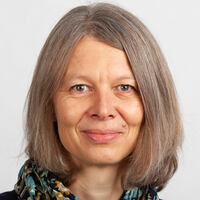


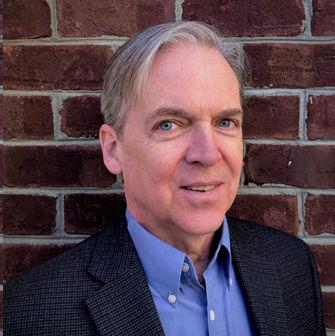




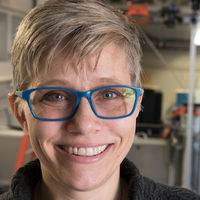











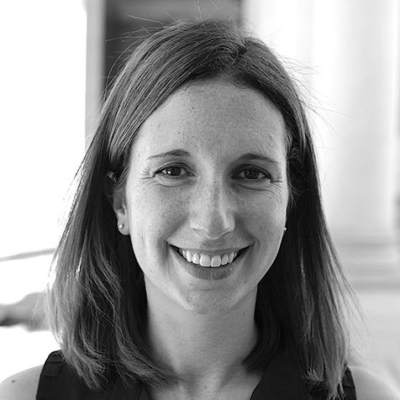






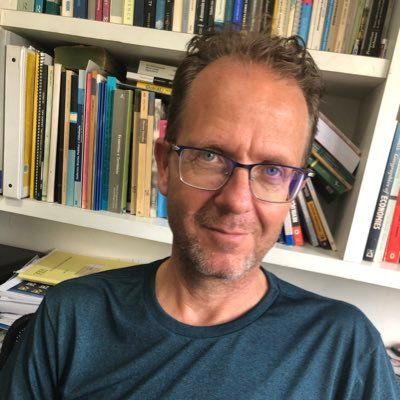
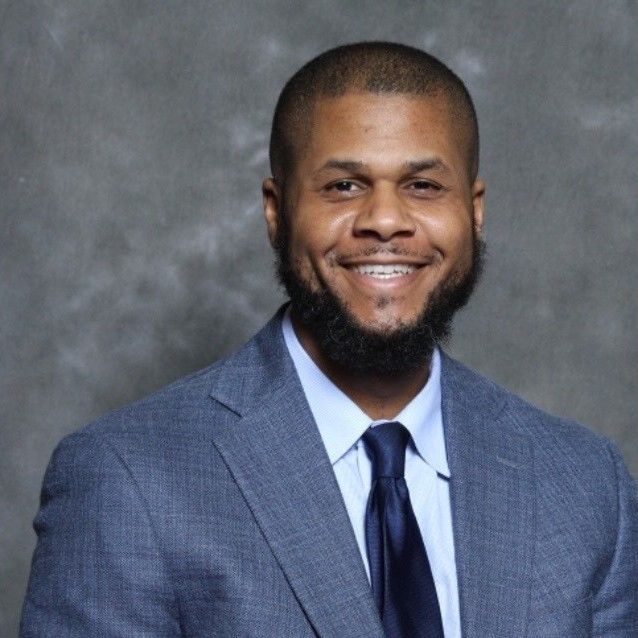


 Isabel Bradburn
Isabel Bradburn Catherine Amelink
Catherine Amelink Mark Burns
Mark Burns Michael O’Rourke
Michael O’Rourke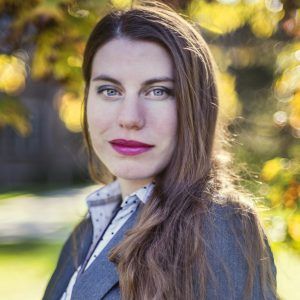 Stephanie Vasko
Stephanie Vasko Lisa Gajary
Lisa Gajary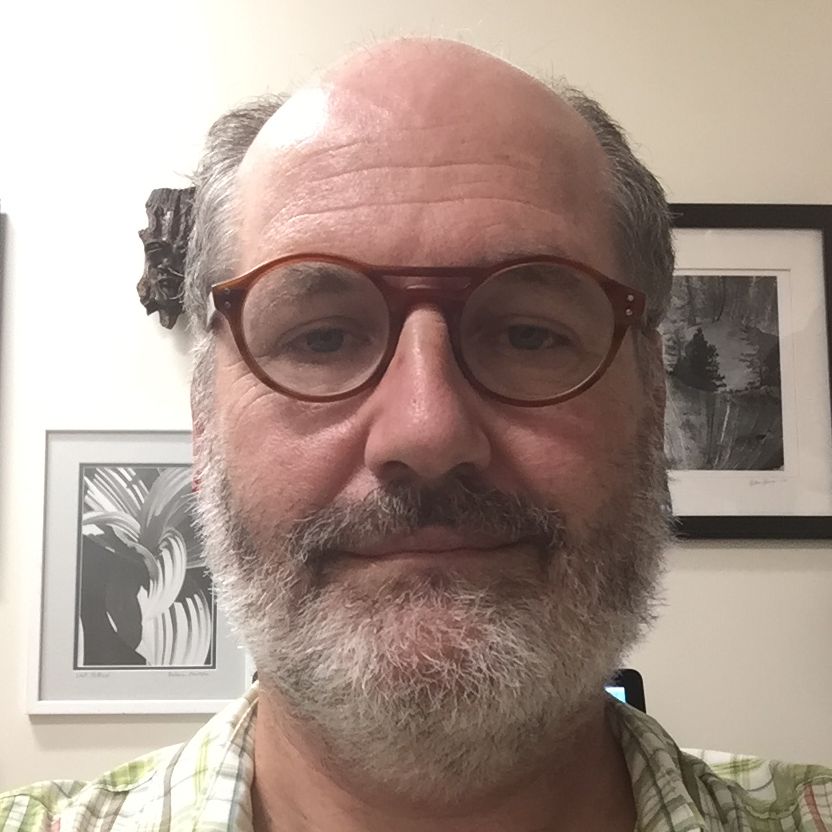 Stephen Crowley
Stephen Crowley Julie Thompson Klein
Julie Thompson Klein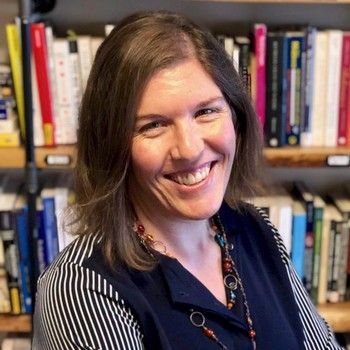 Bethany Laursen
Bethany Laursen Christian Pohl
Christian Pohl